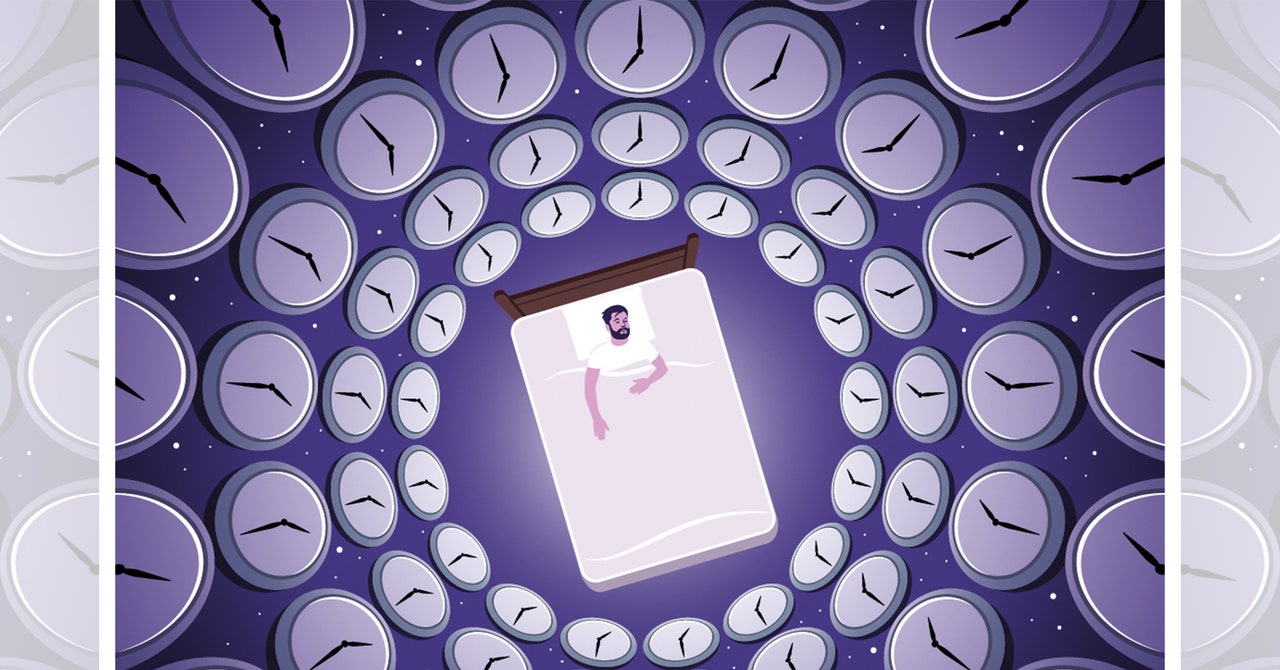[ad_1]
Sleep is an essential part of our biology. Not getting enough of it harms our decision-making skills, our reasoning, even our social interactions.
However, sleep has recently become yet another aspect of our lives that causes endless worry, rather than being enjoyable. We’ve become obsessed with getting the perfect night’s sleep. As a consequence, many of us are now afflicted by sleep anxiety, a condition in which people worry about not falling asleep or staying asleep. In 2018, a study in Nature & Science of Sleep found that this type of anxiety is fueled by a cycle of increased stress, also known as hyperarousal, which, ironically, results in poorer sleep.
Much of that anxiety is actually caused by the constant bombardment of advice from the media and “sleep experts” about what constitutes good sleep, like the need to get eight hours, to wake up at 7 am everyday, or to avoid waking up in the middle of the night.
The worst thing is that much of that advice is actually wrong. The misinterpretation of scientific findings, poor methodologies, and in some cases the need for a good story to sell to the public have perpetuated the myth that there is only one surefire way of getting “good sleep.”
Consider, for instance, the advice that we must at all costs avoid light from screens before sleep. One of the main studies supporting this guideline exposed individuals to four hours of Kindle use (on its brightest light setting) prior to bedtime on five consecutive nights. The result was that sleep onset was delayed by only two minutes a day. Although the results were statistically significant, the biological impact was essentially meaningless.
Many other studies conclude that the optimal amount of sleep is between seven and eight hours. One recent study reinforced this finding, recommending that seven hours was ideal for individuals aged 38 to 73. Getting too much or too little sleep was linked with worse health outcomes. Remarkably, this study—and many reaching a similar conclusion—fails to take into account the health status of participants, blatantly ignoring the fact that poor health is likely the cause of too much or too little sleep in the first place.
On the other hand, a raft of recent studies in the field of circadian neuroscience increasingly presents an alternative perspective: Rather than being one-size-fits-all, healthy sleep patterns are based on our individual needs. This was shown very clearly, for instance, in a recent study that my group at Oxford University conducted with a cohort of adolescents between the ages of 14 and 15. In that group, the average level of insomnia was in the normal range, and we gave participants cognitive behavior therapy for insomnia (CBTi) to reduce stress and improve their sleep. The results show that, on average, this intervention had no impact. However, closer scrutiny of the data indicated that 20 percent of the group did have insomnia, and in this subset, CBTi substantially improved their sleep. That insight would have been completely missed had we only analyzed the average data.
In 2023, this scientific understanding will replace the popular assumption that there’s only one way to sleep properly. Instead, we will learn how to personalize our sleep in a way that’s optimal for our bodies and lifestyles. The younger generations will be among the first to pioneer this new approach to sleep. Indeed, a recent study by Michelle Freeman, a senior economist at the Bureau of Labor Statistics, using data from the American Time Use Survey, shows that millennials are already getting more sleep than Generation X. True, it’s only 22 extra minutes of sleep each night—but it’s a good start. How long we sleep, our preferred sleep times, and how many times we wake during the night vary between individuals and change as we age. In 2023, we will begin to embrace the sleep that works for each of us.
[ad_2]
Image and article originally from www.wired.com. Read the original article here.

